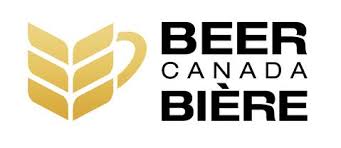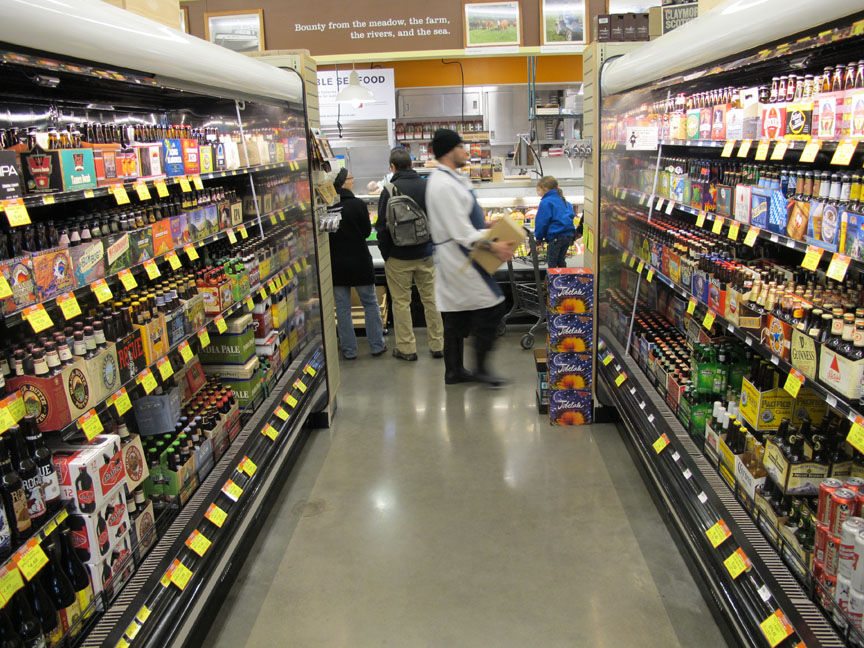New radio ads began airing last week featuring the voices of Bob and Doug McKenzie, the iconic fictional beer-loving duo played by Rick Moranis and Dave Thomas. The two hosers are demanding the federal government “freeze the beer tax”. The ads are part of an ongoing campaign by Beer Canada to pressure the federal government to end inflation-adjustments on federal beer excise duties.
I did my most recent CBC beer column on this topic, which you can listen to here. This post is to fill in some of the details I had to skim over in a short radio piece.
Beer Canada is the largest beer industry association in the country, representing breweries producing 90% of beer made in Canada. The three big corporate breweries are its biggest contributors, but dozens of established craft breweries are also members. For a couple of years now, its highest profile efforts have been to raise concern about the inflation-adjustment of excise.
In 2017, the Liberal federal government announced in its budget a 2% increase to excise. Nothing too unusual there. However, they also quietly announced that, going forward, excise would increase at the rate of inflation every year. Since 2017 it is estimated excise duties on beer have increased 17%. Due to the spike in inflation over the last year, on April 1, 2023, the excise is slated to increase 6%.
Beer Canada has been grumpy about the annual increases since it was announced. However, their ire has reached a fever pitch in the past few months with the prospect of a 6% hike. This is why they have brought in the big guns in Bob and Doug to persuade Canadians that this must stop.
Before I get to the content of their campaign, I need to comment on the production quality of the three commercials (which you can find on the Beer Canada website). The sound quality seems like they got the two actors together on a Zoom call and just hit record. Moranis sounds like he is in a phone booth and Thomas seems only half-interested. The jokes are lame (and to be clear I was a huge Bob and Doug fan as a kid). It all feels rushed and insincere. But that is not the point of this post.

The Beer Canada campaign is anchored in half truths and leans into Canadians’ lack of awareness of how beer taxation works. First, there is no “beer tax” in Canada. The federal government levies excise duties (technically not a tax, but calling it a tax is fair) for each hectolitre (HL = 100 litres) of beer produced in Canada. The provinces each levy their own mark-ups and other fees, which naturally differ by jurisdiction. To my knowledge no province has an annual escalator in their mark-up rules, so they are not going up. Only federal excise is. Finally, don’t forget that sales taxes apply to beer. They aren’t going up this year either.
Beer Canada tosses out the statistic that “almost 50%” of the price of beer goes to taxes. That is not accurate. A few years ago, when Beer Canada started its campaign, Jordan St. John did an excellent analysis of how they got that number (at the time they claimed it was 47%). I won’t go into the details of his calculations – you can read it here – but the short answer is that their methodology inflates the impact of taxation on price.
Once they tee up that half of your beer dollars are going to taxes, they then tell you that the “beer tax” is going up 6%. What a huge increase! Cue the anger.
The problem is that most of those “taxes” found in the “50%” are NOT going up. Only excise is. And how much is excise?
For the big corporate breweries, it is $34.82/HL, or just under 35 cents per litre. That works out to 17 cents a pint, or $2.97 for a 24-pack of 355ml cans. If a two-four of Molson Canadian costs $47 (I did a quick price check at a local liquor store, so your mileage may vary), excise makes up 6.3% of the retail price. That is a far cry from 50%.
The excise is slated to increase in April to $36.91, a jump of $2.09. That is an increase of 1.5 cents per pint. It will increase your two-four by 17.8 cents, bringing the excise share of the retail price to 6.7%. Not sure this increase justifies bringing in the McKenzie brothers.
Wait! There’s more.

Federal excise is not a flat rate. There are lower rates for small breweries that produce less than 75,000HL per year, ranging between $3.48 to $29.60/HL based on size. To simplify the math, let’s use a brewery that produces 10,000HL (on the larger end of a craft brewery in Alberta), which has an excise rate of $13.93/HL. For this brewery excise adds 7 cents to the price of a pint and 29.7 cents to a six pack of 355ml cans, which is 1.66% of an average retail price. The six percent increase would bring the excise up to 31.5 cents per six pack, or 1.75% of the price (note I have to use two decimal places just to show an increase – both round to 1.7%).
Virtually negligible. For the smallest breweries it becomes even more insignificant.
Compare that to Alberta’s mark-up rates. For large breweries, $1.25 per litre is added to the price – $125/HL or 3.5 times more than the excise. Mark-up comprises 22.6% of the retail price. The 10,000HL brewery has a mark-up of 10 cents a litre, or $10/HL (1.2% of retail price). Those rates have remained stable for a few years. The lower rate for small breweries reflects that they lack the economics of scale of large breweries.
The comparative impact of the mark-up vs. excise on prices demonstrates that Beer Canada’s 50% figure only reflects the experience of the big three brewers, maybe. Together, the two levies make up only 3% of the retail price for small Alberta breweries. For Molson, Labatt and Sleeman, they comprise 29% (still a far cry from 50%, even if you add in GST). And the biggest bite comes from the provinces, not the federal government.
So why the large hue and cry? For Molson (Molson-Coors), Labatt (ABInbev) and Sleeman (Sapporo) there are millions of dollars at stake, given their large volumes. But they aren’t pulling the McKenzies out of retirement for your benefit. The general practice is that breweries factor excise into their pricing – it is a stable, consistent cost. That is the key point. The segments of the market the big boys dominate are generally more price sensitive. They have to be aware of competitors’ pricing and the price thresholds of their various consumer types. If the price goes too high, people switch to lower cost brands or beverages. So while an 18 cent increase on a 24-pack seems fairly inconsequential, it edges their products closer to that theoretical price ceiling.
By telling Canadians that the “beer tax” makes up 50% of the cost of beer and it is going up by 6%, the big breweries accomplish two things, in my opinion. First, they prime consumers to expect a big price increase in the spring. That has the effect of weakening price sensitivity and the theoretical price ceiling in the consumers’ mind goes up. “I was told prices are going up, nothing I can do about it”, becomes the logic, giving the breweries more price space to work with.
Second, it sets up consumers to expect a much larger price increase due to excise than is actually the case. Six percent of half the price is an increase of 3%. The excise is only affecting price by 0.4%. That allows the breweries to increase prices more than the excise increase and blame the government, pocketing the rest. (I recognize their input costs are going up as well, and so that additional increase will not all be profit, but recouping some of those increased expenses). They keep consumer good will and address their pricing problems at the same time.
Smaller breweries have both a smaller excise hit overall and a less price sensitive consumer. The interests of the big three and small craft breweries do not align on these issues. I have spoken to a number of smaller and medium-sized breweries across the country and they tell me the annual escalator is not a big issue for them. So why are smaller members of Beer Canada going along with the campaign? I cannot say.
What I can say is that, regardless of the merits of Beer Canada’s argument about increasing excise, their campaign has the effect of misleading consumers. And that is something I cannot tolerate.
[Feature Image captured from Beer Canada website.]


February 21, 2023 at 12:22 PM
I am curious how this taxation affects craft breweries that have been acquired by the big three. Does Banded Peak get taxed on it’s own merit, or is their level of taxation determined by Labatt overall. Similarly Unibroue as a part of Sleeman.
And also does it matter a lick at all?
February 21, 2023 at 1:37 PM
Good question. I believe, but could be wrong, that excise is about the corporate entity’s production levels, not individual brewery operation. I know for certain Banded Peak falls under ABInbev for calculation of mark-up and I think it is the same for excise.